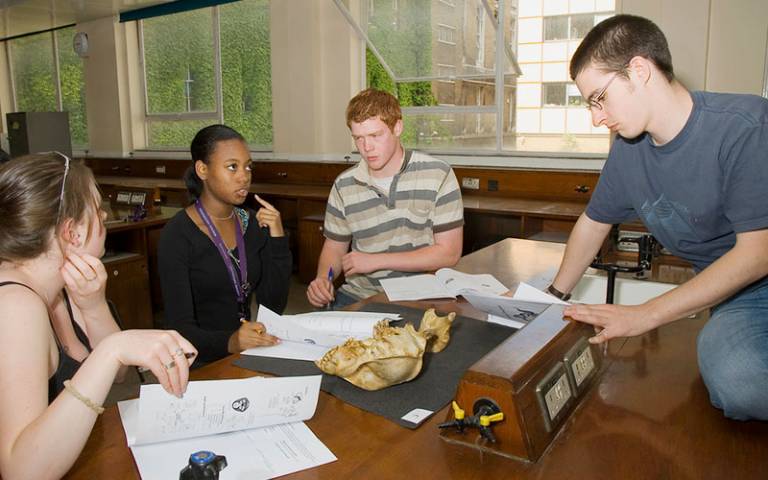How do students become independent and creative problem solvers?
Dr Nephtali Marina-Gonzalez combines two approaches – problem-based learning and flipped learning - to help his students tackle real-life, ill-defined, clinically-relevant situations.

21 December 2016
"I am module lead of the Cardiovascular and Respiratory Function in Health and Disease module for first year students on the Applied Medical Science BSc.
Combining problem-based learning and flipped learning
In this module, we bring together two innovative, but distinct, learning approaches – problem-based learning and flipped learning: students are presented with contextual situations, asked to define the problem and pose possible solutions (problem-based learning); they then watch online interactive lectures to investigate and help solve the problem (flipped learning).
The problem-based approach
They start with a problem-based learning tutorial, facilitated by a tutor. The students elect a chair for the session and a “scribe” to record the discussion.
The student chair presents the scenario and leads a discussion in which students define the problem, suggest possible explanations on basis of prior knowledge and formulate their own learning objectives. The roles are rotated for each scenario so every student gets a chance to develop skills in chairing a meeting and negotiation.
The flipped approach
Then comes the ‘flipped classroom’ approach, where the typical lecture/homework elements are reversed.
The students independently watch prescribed online lectures which aid their thinking in solving the problem.
They then attend a second tutorial session to discuss each of the learning objectives and share the results of their private study (identifying their learning resources and sharing their conclusions).
As in the initial tutorial, the session is facilitated by a staff tutor who ensures that the learning outcomes are achieved.
Developing students as problem solvers, not learners
Good scientists need to be creative to solve problems.
The Applied Medical Sciences course is leading the way for UCL by encouraging inventiveness, creativity and independence but most of all, innovation.
We don’t simply teach our students the facts. Instead, by giving them problem-solving opportunities, they learn how to think, communicate and develop their approaches to problems.
Our curriculum prepares students to be productive citizens for the next century by not simply imparting today's facts and theories - which may soon be outdated - but by showing them how to learn on their own and how to use the information they acquire.
We decided to combine problem-based learning and flipped learning as both approaches are renowned for encouraging student-led learning and allow us to put our students in to small groups to tackle real-life, ill-defined, clinically-relevant situations.
Problem-based learning has been implemented by some of the most respected medical and biomedical sciences schools, such as Harvard and Stanford, but despite its effectiveness, it has never been used in a biomedical or medical curriculum in UCL until now.
Feedback from students and staff
Students find these sessions inspirational, interesting and fun.
I have witnessed how combining problem-based learning with flipped classrooms facilitates skills such as:
- teamwork
- chairing a group
- listening
- recording
- cooperation
- respect for colleagues’ views
- critical evaluation of literature
- peer feedback
- self directed learning
- use of resources
- overall presentation skills.
Professor Kevin Moore, Programme Director, said:
“I like this new approach very much as it builds on the existing tutorial method nicely and makes the learning more clinically relevant.”
Dr Steven Buckingham, Principal Teaching Fellow and first-year lead for the programme, said:
“The sessions were excellent, and I am really excited about the possibilities afforded by mixing problem-based learning with our flipped learning. I saw how engaged the students were, and it was a real eye-opener for me to see how it got the students to organise their current knowledge – in that regard alone, it vastly improves our 'pre-learning' phase idea.
One student came up to me at the end and asked earnestly whether we would be doing more of this sort of thing. I think that joining problem-based learning to our existing strategy is going to take us up a big notch.”
Expanding the appraoch across the curriculum
In the future, we want to include problem-based learning in all clinically-relevant tutorials in the cardio-respiratory, renal and gastrointestinal physiology modules for first year students and we are planning to eventually expand this approach to other modules taken by all undergraduates on the programme.
 Close
Close

